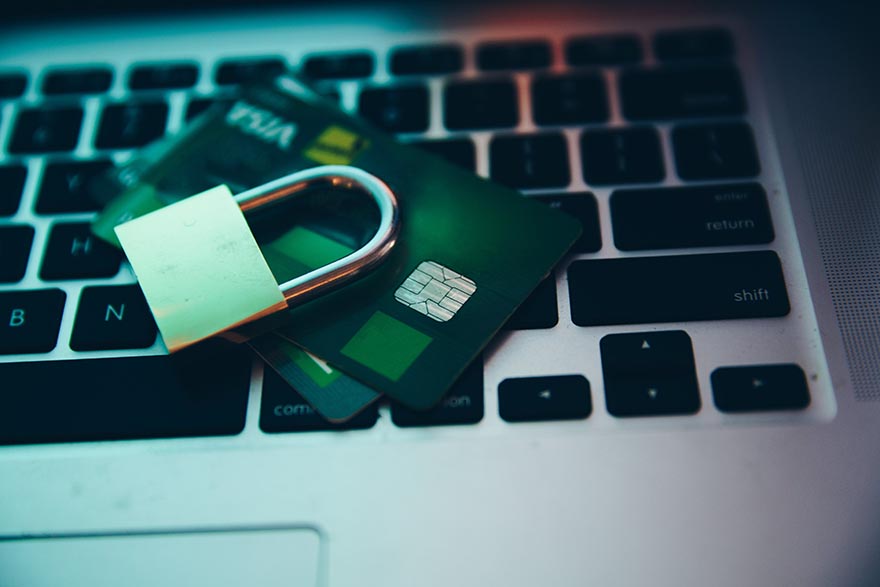
As convenient as it sounds, online payment systems have their struggles to deal with. Since cybercrimes are on the rise, online payment security has become a paramount concern for businesses. People have lost $32.39 billion last year due to payment fraud and are expected to rise to $40.62 billion by 2027. In other words, payment crimes will hike by 25% in the next six years.
So, what should one do?
How should they protect their hard-earned money from the ugly intentions of cybercriminals? We have the answer but, before we discuss that, let us look at the importance of payment security.
Importance of online payment security for businesses?
It is all about ONE mistake
People won’t remember how flawlessly you ventured for the last ten years; what matters to them is that you are making the news headlines because of data theft or payment fraud. Your business success gets hampered because of just one mistake. So, it is of utmost importance to ensure that your website or store is 100% secure and protected at all times.
Online businesses are fragile, and so is a success. You might be doing everything right but, if a cybercriminal has ill intentions, you need to be ready to repel the attack at all times.
5 Steps to Ensure Safe Transactions
1. SSL Certificate is Paramount
SSL or Secure Socket Layer certificate provides security to the overall framework of a website. It encrypts the user's data and passes it through a secure network so that no hacker can lay eyes on it. SSL employs symmetric and asymmetric cryptographic functions where it uses public, private, and session keys to secure the data.
Now, you will ask, “how does it protect my payment transactions?” Well, SSL complies with the PCI/DSS guidelines that are standards to measure how safe a site is to facilitate online transactions. While processing a payment request, SSL ensures that hackers cannot decrypt sensitive numbers like CVV’s, Credit/Debit card numbers and mobile numbers, etc.
Moreover, if you install an SSL certificate, you can maintain your record in Google’s good books. The search engine giant has made the use of SSL certificates mandatory for all websites to flourish on it.
Websites without SSL are marked as not secure by Google, and users get warning messages before visiting such sites. SSL also implants a sense of trust in the customers. By seeing the grey padlock in front of the URL, they feel safe.
2. Install an Anti-Malware
Malwares can damage your system in unimaginable ways. It is even harder for users from non-technical backgrounds to detect whether their system got hacked or not. Since malware can come in various ways, it is best to install an anti-malware system that can protect your website as a whole.
You must ensure that your anti-malware software is more than capable of repealing older viruses and new ones. For that, you have to keep your anti-malware software updated at all times. Thus, anti-malware is essential for your overall security.
3. Don’t make purchases from unsolicited websites
The responsibility of your safety does not solely lie on the website owners. As a customer, you must be aware of where you are clicking and what you are visiting. It is recommended to avoid making transactions with websites you have not heard of in the past. Such websites can steal your credit/debit card and bank information and use them for criminal activities.
So, do not simply visit a website and open your secret numbers up. Keep them to yourself until you draw a positive conclusion through thorough analysis.
4. Use Credit Cards instead of Debit Cards
Credit cards are comparatively safer to debit cards purely because debit cards are directly linked to your bank account. This means that if a hacker penetrates through your CVV and PIN, the chances are that they have full access to all your hard-earned money in your bank account.
But, in credit cards, there are set transaction limits that one cannot exceed, which is why hackers can only purchase up to a set amount after which they have to stop. So, get smart and use a credit card instead of a debit one.
5. Avoid Using Public Computers for making Transactions
Using cyber cafés and public devices for making sensitive online transactions can prove costly to you. Cyber cafés can tie up with fraudsters and hand over your information to them for stealing. Also, public networks such as Wi-Fis are unsafe too. Such networks can get manipulated at any time, and If you are using them, you can lose all your data and money.
So, make sure that you only use your device and networks to make a purchase. Moreover, use strong credentials (usernames and passwords) to login to eCommerce websites to decrease your chances of getting hacked significantly.
To Conclude
Websites are improving their payment processing systems by installing SSLs, anti-malware, and complying with PCI/DSS guidelines. But that does not mean that we do not have to think twice about trusting them as customers.
We must make equal efforts to repel cyberattacks and work in tandem with websites to maintain security. As customers, we must resort to buying from websites that have proved their authenticity in the past. Moreover, adding debit cards can prove fatal, which is why we must add credit cards, in case we compulsively have to.
These small actionable steps can help make a robust payment processing system that becomes impenetrable. So, employ these five techniques and make safe transactions.